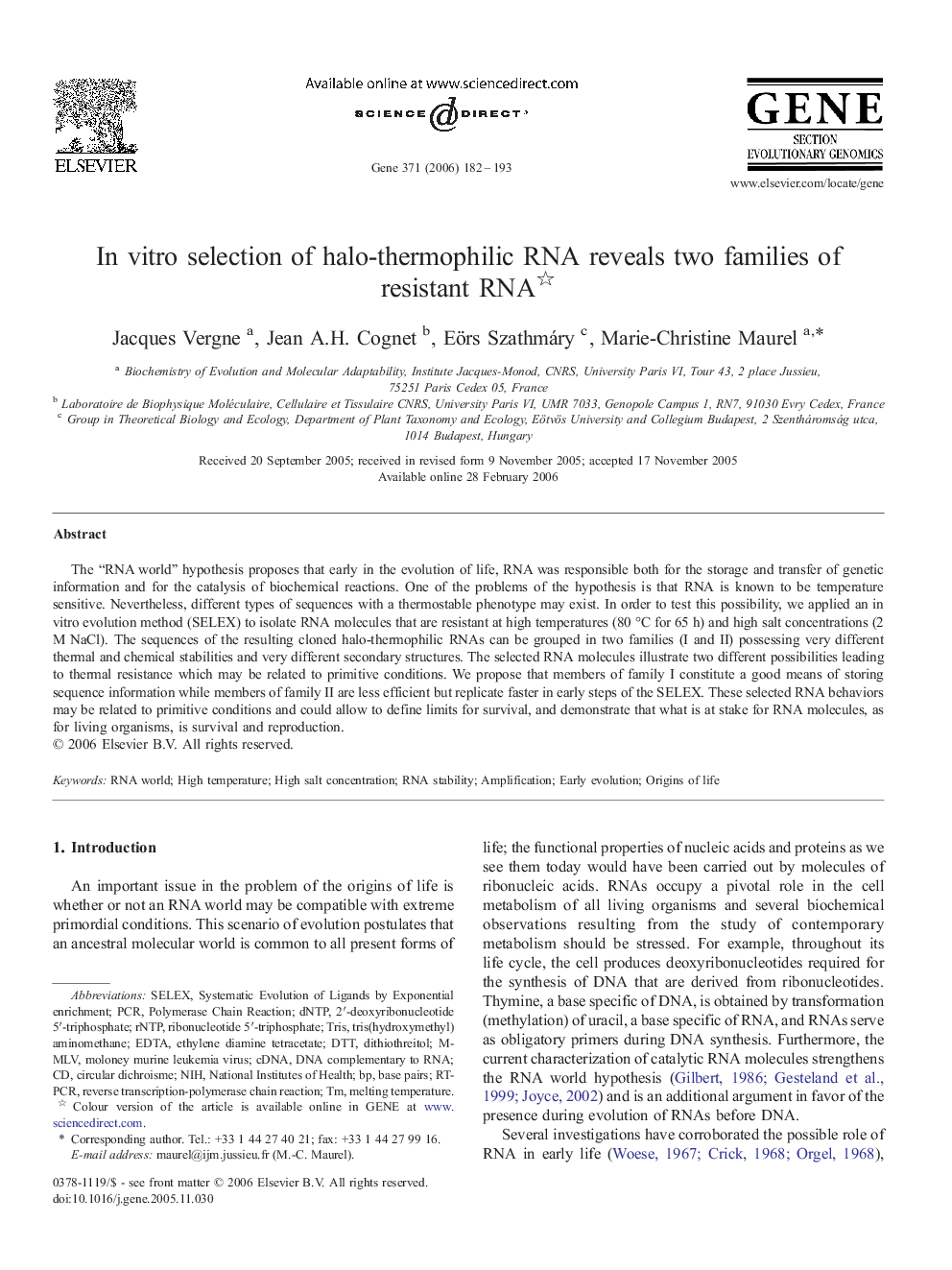| Article ID | Journal | Published Year | Pages | File Type |
|---|---|---|---|---|
| 2820233 | Gene | 2006 | 12 Pages |
Abstract
The “RNA world” hypothesis proposes that early in the evolution of life, RNA was responsible both for the storage and transfer of genetic information and for the catalysis of biochemical reactions. One of the problems of the hypothesis is that RNA is known to be temperature sensitive. Nevertheless, different types of sequences with a thermostable phenotype may exist. In order to test this possibility, we applied an in vitro evolution method (SELEX) to isolate RNA molecules that are resistant at high temperatures (80 °C for 65 h) and high salt concentrations (2 M NaCl). The sequences of the resulting cloned halo-thermophilic RNAs can be grouped in two families (I and II) possessing very different thermal and chemical stabilities and very different secondary structures. The selected RNA molecules illustrate two different possibilities leading to thermal resistance which may be related to primitive conditions. We propose that members of family I constitute a good means of storing sequence information while members of family II are less efficient but replicate faster in early steps of the SELEX. These selected RNA behaviors may be related to primitive conditions and could allow to define limits for survival, and demonstrate that what is at stake for RNA molecules, as for living organisms, is survival and reproduction.
Keywords
High salt concentrationrNTPM-MLVDTTTRISSELEXRT-PCRdNTPNIHcDNADNA complementary to RNAEDTATris(hydroxymethyl)aminomethaneAmplificationearly evolutionsystematic evolution of ligands by exponential enrichmentRNA stabilitybase pairsRNA worldHigh temperatureMelting TemperaturedithiothreitolOrigins of lifeNIH, National Institutes of Healthreverse transcription-polymerase chain reactionpolymerase chain reactionPCRMoloney murine leukemia virus
Related Topics
Life Sciences
Biochemistry, Genetics and Molecular Biology
Genetics
Authors
Jacques Vergne, Jean A.H. Cognet, Eörs Szathmáry, Marie-Christine Maurel,
